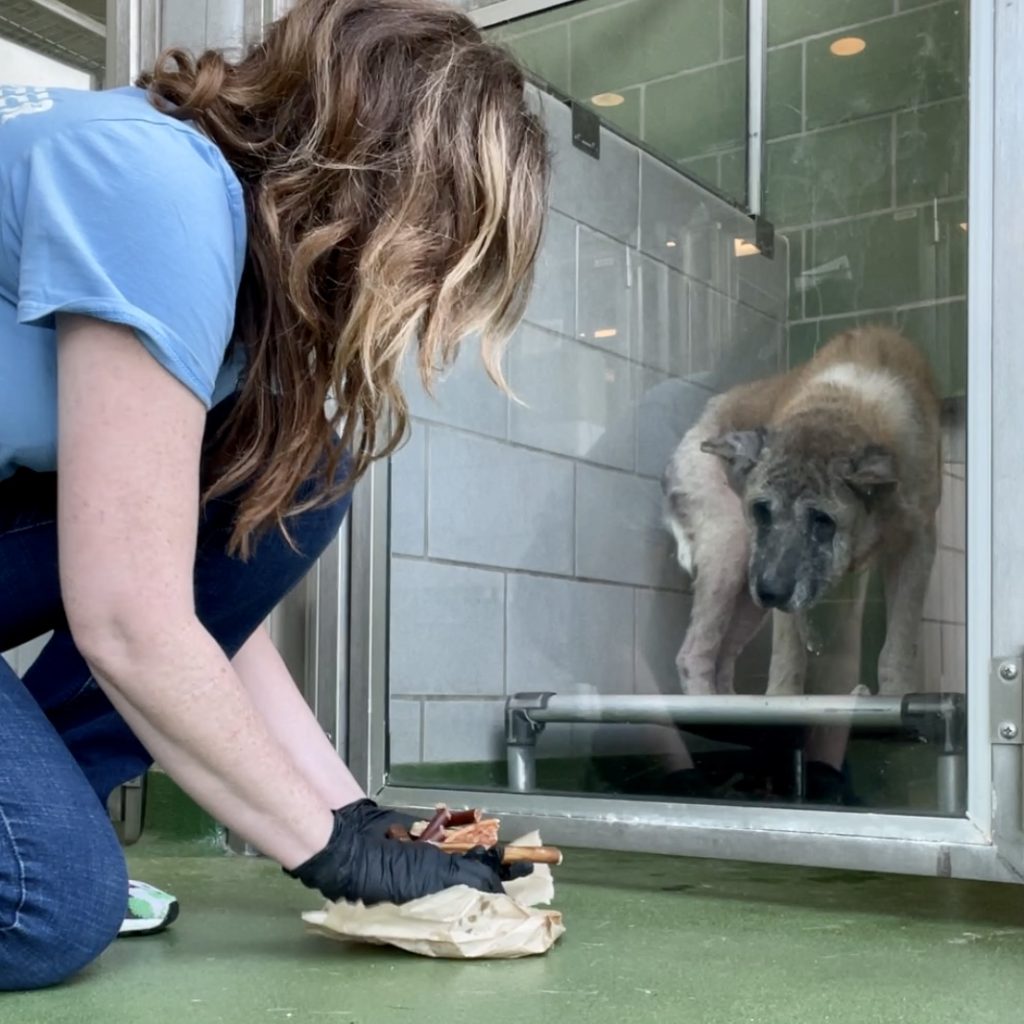The Importance of Volunteering in Shelters for Rescued Animals: How to Contribute and Make a Difference

Discover the Benefits of Volunteering in Animal Shelters
Every year, millions of rescued animals find their way into shelters across the United States. These animals often arrive traumatized and in need of support, making the role of volunteers crucial. By joining the efforts of local shelters, you not only lend a helping hand but also gain invaluable experiences that can shape your perspective on animal care and community involvement.
Why Volunteer at an Animal Shelter?
Volunteering at a shelter offers numerous benefits, both for the animals and the individuals involved. Here are some compelling reasons to consider:
- Make a Difference: Your time and effort can significantly improve the lives of pets awaiting adoption. Many dogs and cats in shelters are in desperate need of social interaction and care, which can enhance their chances for successful adoption. For example, simply spending time with a shy dog can help build its confidence and make it more adoptable.
- Learn Valuable Skills: Volunteering gives you hands-on experience in animal care, training, and even community outreach. You might learn how to administer basic first aid, understand animal behavior, or even participate in training sessions. Such skills could be beneficial if you are considering a career in veterinary medicine or animal behavior.
- Build Connections: You’ll meet like-minded individuals who share your passion for animal welfare. Whether you connect with fellow volunteers, shelter staff, or local community members, these relationships can foster a supportive network that extends beyond the shelter walls.
Moreover, volunteering can positively impact your community. Shelters often serve as educational hubs, promoting responsible pet ownership and the importance of spaying and neutering. This awareness can lead to a healthier community for pets and their owners.
How to Get Involved
Contributing to the mission of animal shelters can vary in form. Here’s how you can help:
- Walk dogs, socialize cats, and assist with adoption events. These activities not only improve the pets’ quality of life but also allow potential adopters to see the animals in a lively and engaging environment.
- Assist with fundraising, fostering, or organizing community outreach programs. Many shelters rely on these efforts for vital resources, so your involvement can directly impact the shelter’s ability to care for animals.
- Spread the word about rescue efforts and encourage adoptions. By sharing success stories on social media or in your community, you can inspire others to consider adopting a pet rather than purchasing one, fostering a culture of compassion.
As you explore the world of volunteering, consider the profound impact it has on both your life and the lives of countless animals in need. Every little effort counts, and the rewards, both personally and in the broader community, can be immeasurable. Take the first step today and discover how fulfilling it can be to be part of the solution for our furry friends.

LEARN MORE: Click here to discover the benefits of puppy socialization
Your Role: A Beacon of Hope for Rescued Animals
Volunteering in animal shelters is not just a charitable act; it is a vital lifeline for countless animals grappling with the uncertainty of their future. Each year, approximately 6.5 million companion animals enter shelters in the United States, confronting dire situations ranging from abandonment to neglect. This astonishing number highlights the urgency and significance of volunteer efforts, which play an essential role in transitioning these animals from stressful circumstances to loving homes.
Beyond merely providing occasional help, volunteers become critical components of the animal care team. They enrich the lives of sheltered pets by offering companionship and support, which in turn enhances the chances for successful adoption. Many dogs, for example, come to shelters with past traumas that make them wary of human interaction. By dedicating your time to building trust and providing affection, you are not just improving their quality of life; you are also improving their chances of adoption. With effective socialization, these animals learn to let their guard down, ultimately opening up to potential humans in a shelter environment.
The Ripple Effect of Your Involvement
Volunteering has a far-reaching impact that extends well beyond the confines of the shelter. Here are some key areas where your efforts can create a ripple effect:
- Community Awareness: By volunteering, you become a voice for the voiceless. Educating your community about the importance of adopting pets from shelters rather than purchasing from breeders can drive awareness and change. An informed community is more likely to make compassionate choices, thereby contributing to a decrease in shelter overpopulation.
- Support Emotional Well-being: Engaging in volunteer activities promotes mental health benefits for both humans and animals. Studies have shown that spending time with animals can reduce feelings of loneliness and increase feelings of happiness and satisfaction. This mutually beneficial relationship fosters emotional resilience in both you and the pets you care for.
- Enhance Shelter Operations: Many rural or smaller shelters often operate on tight budgets and limited manpower. Your volunteer time can assist in managing day-to-day operations, such as cleaning, organizing supplies, and helping in the administrative aspects, which ultimately allows shelters to allocate more resources towards animal care and welfare.
As you become more involved in your local shelter, you will find that the bond formed through volunteering goes both ways. The experiences you gain are invaluable, and the differences you make resonate throughout your community, transforming lives—both animal and human—along the way. There is no denying that your commitment can catalyze positive change, and the fulfillment you derive from this journey is immeasurable. If you have ever considered volunteering, there has never been a better time to dive in and make a lasting impact.
| Advantage | Details |
|---|---|
| Building Community | Volunteering cultivates a sense of community and supports local shelters in caring for animals. |
| Personal Growth | Engaging with rescued animals enhances empathy and provides valuable life experiences that can benefit your personal development. |
| Education and Awareness | Volunteers help raise awareness about the importance of animal rescue and the need for responsible pet ownership. |
| Skill Development | Working in a shelter allows volunteers to gain valuable skills, from animal care to teamwork and communication. |
Volunteering in shelters for rescued animals is not just about the time you contribute; it’s also about the countless ways you can make a difference. By focusing on building community ties, you help foster a safer environment for animals while forming connections with like-minded individuals. Furthermore, this experience can truly shape your personal growth, making you more compassionate and aware of the challenges faced by these vulnerable creatures. Moreover, through education and outreach, volunteers play a crucial role in spreading vital information about the importance of spaying, neutering, and responsible ownership. You not only assist in the care of animals but also become an advocate for their rights, ensuring a broader impact on societal views towards shelter animals. Lastly, volunteering helps you develop transferable skills that enhance your resume and prepare you for future endeavors, whether professional or personal. These benefits are just the tip of the iceberg when it comes to understanding the significance of contributing your time and effort to animal shelters.
DISCOVER MORE: Click here for essential pet care tips
Different Ways to Volunteer and Make an Impact
When considering how to contribute to animal shelters, it’s essential to recognize that volunteering can take many forms. Your involvement can be tailored to your skills, interests, and available time. Here are several impactful ways to engage and make a difference:
Hands-On Direct Care
One of the most common volunteer roles involves direct animal care. This includes walking dogs, socializing cats, and helping with feeding routines. Each interaction not only improves the animals’ demeanor but also enhances their adoptability. Shelters often seek individuals who are passionate and willing to invest time in nurturing these animals. Simply being present can foster emotional growth and significantly reduce anxiety among these creatures. Typically, shelters offer training sessions for new volunteers to ensure everyone feels comfortable in their roles.
Fundraising and Event Coordination
Another way to contribute is through fundraising and organizing events. Shelters frequently rely on donations and community support to cover their operating costs. As a volunteer, you could help plan bake sales, charity runs, or pet adoption events. Not only does this provide much-needed funds, but it also creates opportunities for community members to engage with the shelter, learn about the animals, and consider adopting. Your organizational skills could be the key to making these events successful, enhancing visibility for the shelter while showcasing the animals that are awaiting homes.
Fostering Animals
Fostering is a huge commitment, but it can be incredibly rewarding. Many shelters are overwhelmed with animals, and providing a foster home allows them to create more space for rescues in need. As a foster caregiver, you offer a temporary home for pets, which helps reduce their stress levels and allows them to acclimate to a home environment. Additionally, fostering can provide much-needed time for the shelter to assess the animal’s behavior and provide them with specialized training. This often results in creating a more adoptable pet.
Advocacy and Awareness
Aside from physical roles, becoming an advocate for rescued animals is a powerful way to contribute. Utilize your social media platforms to spread awareness about the needs of local shelters, share individual animal profiles for adoption, or highlight the importance of spaying and neutering pets. Spreading the message about the plight of shelter animals encourages others to get involved, whether through direct volunteering, donations, or even adopting a pet. Every share, like, or comment can amplify the cause and reach potential adopters who may not have been aware of the local shelter.
Connecting with Other Volunteers
Building a network of support among fellow volunteers is equally crucial. Many shelters encourage teamwork and collaboration, allowing you to connect with others who are passionate about animal welfare. This community often becomes a source of inspiration and camaraderie, providing emotional support and sharing tips on how to care for and rehabilitate the animals. Engaging with others enhances your experience, making volunteering not just a duty, but a fulfilling adventure.
The impact of your involvement in a shelter goes beyond the tasks you perform. Each action, whether big or small, contributes to the broader mission of caring for and finding homes for these deserving animals. By understanding the various avenues for volunteering, you can choose the path that resonates most with you and leads to meaningful contributions in the lives of rescued animals.
DISCOVER MORE: Click here for essential tips on welcoming a rescued pet
Conclusion: Making a Meaningful Impact Through Volunteering
Volunteering in shelters for rescued animals is not just an act of kindness; it is a profound commitment that transforms lives—both animal and human. By engaging with these animal shelters, whether through direct care, fundraising, fostering, or advocacy, volunteers can significantly enhance the quality of life for countless pets. Understanding the myriad roles available allows individuals to find their niche, enabling them to contribute meaningfully to the mission of animal welfare.
The emotional rewards of volunteering—seeing a timid shelter dog blossom into a loving companion, or finding a forever home for a once-overlooked cat—are immeasurable. Moreover, the ripple effect of your efforts reaches beyond the shelter. Each act of support fosters a greater awareness of the challenges faced by rescued animals and encourages community involvement, inspiring others to take action.
As you consider your next steps, remember that your involvement can help shape a better future for these animals. Volunteering not only nurtures the spirits of neglected pets but also strengthens the community around them. By dedicating your time and resources to animal shelters, you become an essential part of a larger movement dedicated to making a difference. Join this rewarding journey—your impact can create a brighter tomorrow for both shelter animals and the families who unite with them.



